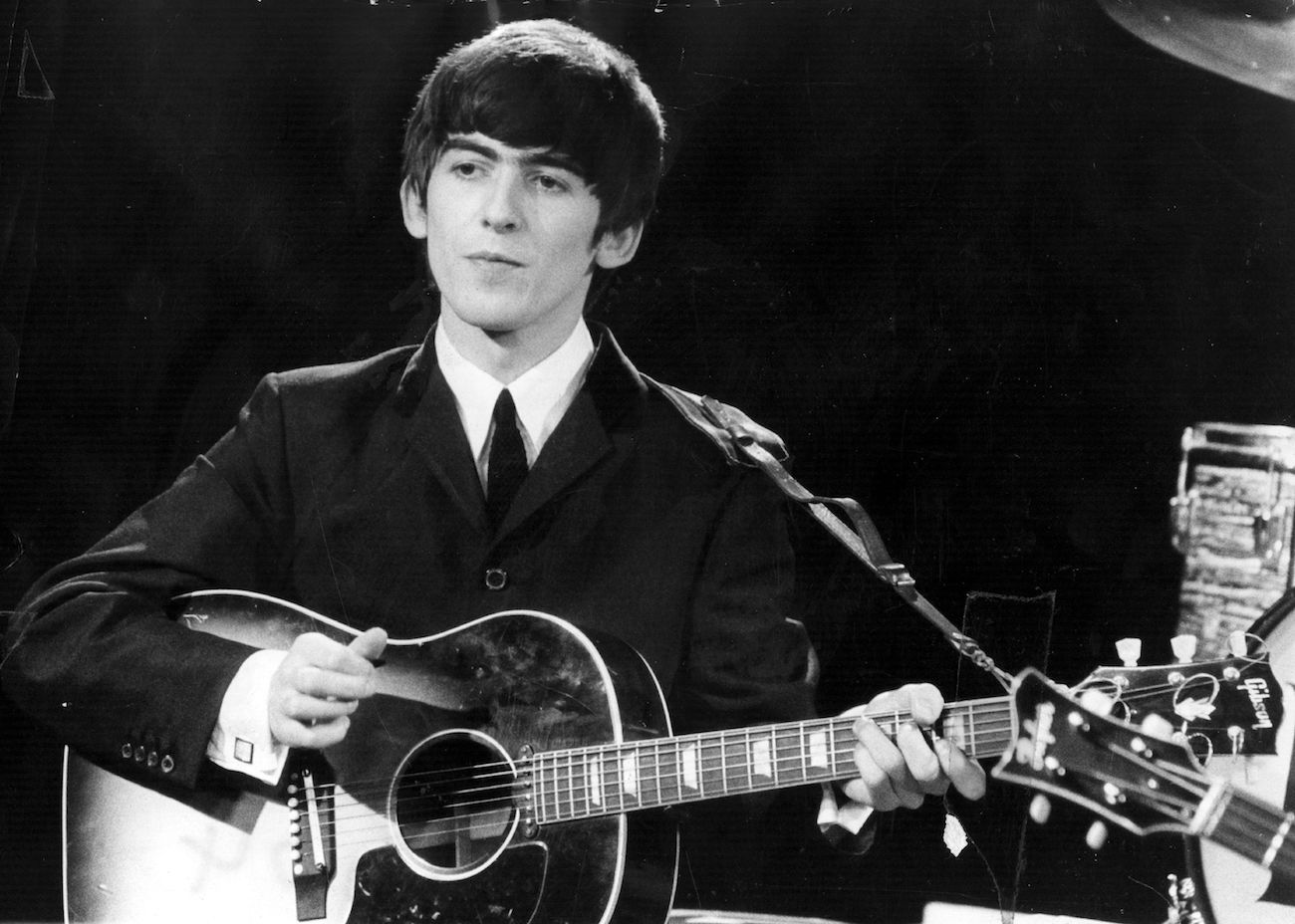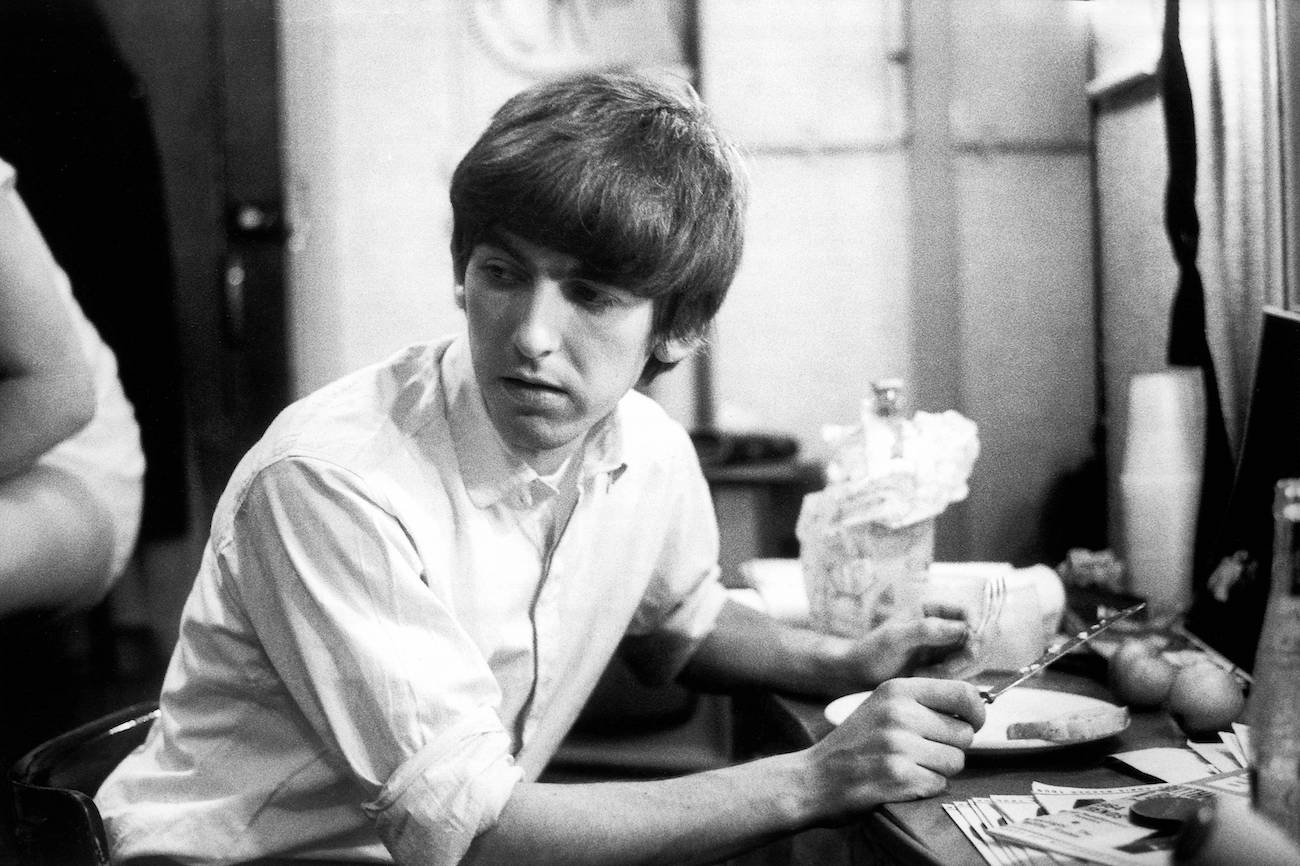
Cousin Brucie Said George Harrison Was ‘More Present’ Than the Rest of The Beatles
When The Beatles started gaining popularity, the press stereotyped them. John Lennon was the witty one, Paul McCartney was the cute one, George Harrison was the quiet one, and Ringo Starr was, well, Ringo Starr. Those labels couldn’t have been farther from the truth.
However, one person in the media didn’t stereotype The Beatles; radio personality Cousin Brucie, a.k.a. Bruce Morrow.

Cousin Brucie befriended George Harrison and The Beatles after heavily promoting their music on the radio in the U.S.
Cousin Brucie helped The Beatles become famous in the U.S. He told Forbes that he received the first Beatles record from an armed security guard, who had it handcuffed to his wrist in an attaché case.
The song was “I Want To Hold Your Hand.” “He says to me you can’t have it until 9 o’clock. So at 9 o’clock when I played it would automatically go on our syndication to 40 states,” Cousin Brucie said.
“So I played, ‘I Want To Hold Your Hand.’ Never played before. And I heard it. I played it eight times. I knew what was happening. Now it seems what happened is dozens of radio stations because of my reach copied that record. Now it wasn’t great quality. But the next day they all did what I did. And it went everywhere.”
Brucie helped The Beatles get their first No. 1 hit in America. However, many people have disputed when The Beatles first hit U.S. radio. George even helped. He gave his copy of “She Loves You” to DJs at a radio station in his sister’s town, Benton, Illinois, in 1963.
Regardless, Cousin Brucie befriended George and The Beatles. He and Ed Sullivan introduced them on stage during their Shea Stadium concert in 1965. “About 65,000 screaming fans,” he said. “There was energy like I have never felt. But now I say, it was an energy of love.”
Cousin Brucie said The Beatles were nervous before the show; he was too but reassured them. He said, “And in the dugout before we introduced them John Lennon comes up to me with Paul McCartney and John says, ‘Cousin, is this going to be safe? Is it dangerous?’
“And I put my fingers behind my back and I crossed my fingers because I was scared, and said, ‘John, Paul. This is going to be safe. All they want to do is be in the same space as you cause they love you.’ Frankly I was scared stiff – I’d never felt a cacophony of energy like I’d never felt.
“So I’m walking up the stairs with Ed Sullivan and we were just feeling this huge energy – you could feel it through your body. And Ed says, ‘Is this going to be safe Cousin?’ So I said to him since I wanted to give him a hard time, ‘Well Ed. I think it’s not going to be safe. It will be dangerous.’ He then asked, ‘What do we do?’ I said, ‘Pray, Ed, Pray.'”
Cousin Brucie said George was more present than the other Beatles
Cousin Brucie saw George and The Beatles’ true personalities after spending time with them. According to Joshua M. Greene’s Here Comes The Sun: The Spiritual And Musical Journey Of George Harrison, Cousin Brucie said George was more present than the rest of the band.
“Even in those early days,” Cousin Brucie recalled, “George was different from the other three. For example, just before going on stage at Shea Stadium, Paul asked me, ‘What’s going to happen here?’ George wouldn’t verbalize his concerns like that. He would simply study what was going on.
“Some people might look at him and think he was disassociated, that his head was somewhere else, but he struck me as even more present than the others, watching from within and absorbing and thinking about what was going on. He was very aware of his surroundings, planning ahead. He just wasn’t verbal about it.”
The radio personality said journalists wanted to talk to John and Paul more than George
Cousin Brucie explained it was easier for journalists to think George was just a quiet person than to understand his real personality. Deep down, they may have understood, but George’s demeanor scared them. They thought he’d say something too serious and produce dead air.
“I remember interviewing them, and in those days, honestly, George wasn’t the most exciting Beatle,” Cousin Brucie explained. “As a journalist, you’d go after John or Paul or Ringo. George’s introspection made us afraid of getting too much of the mortal sin for a broadcaster, namely dead air.”
Cousin Brucie wishes he and other journalists gave George a chance to be himself. “But in retrospect, that was very wrong,” he said. “I think now that if we had given George the courtesy and respect he deserved, his whole persona might have changed. But none of us did that. It was the other three who got 90 percent of the action.
“When he was interviewed, George was always direct, never flowery with his words. He answered succinctly. If he could answer in two sentences, he never made it into a paragraph. He had kind eyes. When you spoke with him, he looked directly at you. You knew there was sensitivity at work.
“I remember talking to George in one Beatles interview, and McCartney butts in and asks John, ‘Hey, John, why don’t you tell him who you’re sleeping with now?’ First of all, in those days, you didn’t make those kinds of references on the air. But I remember George looking down. He didn’t say anything, but he looked down as if he was embarrassed or disapproved.
“I don’t know whether it was for me or for what McCartney said, but it did seem that he felt the comment out of line. Maybe their success in America had hit them so quickly that they didn’t always know how to handle it and would sometimes react with nervous energy and get occasionally snippy. But Harrison never was.”
Fortunately, Cousin Brucie recognized George’s true nature, even though he didn’t initially gravitate to him for interviews like John or Paul. George was hard to figure out, but the radio DJ had no trouble analyzing him.


